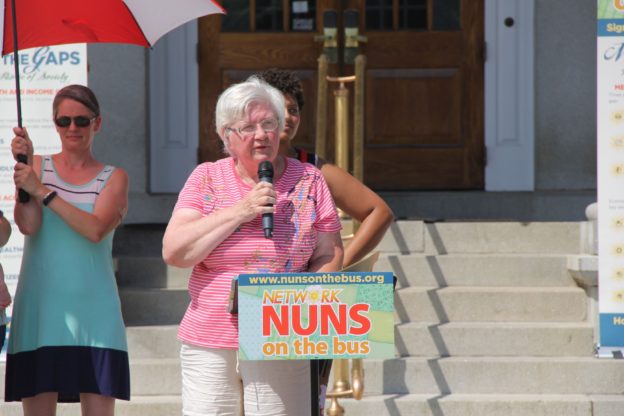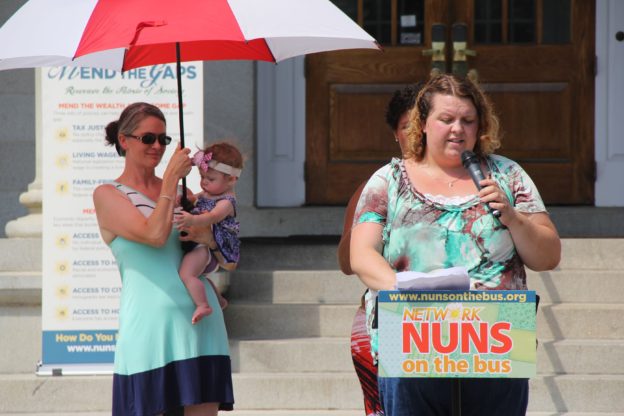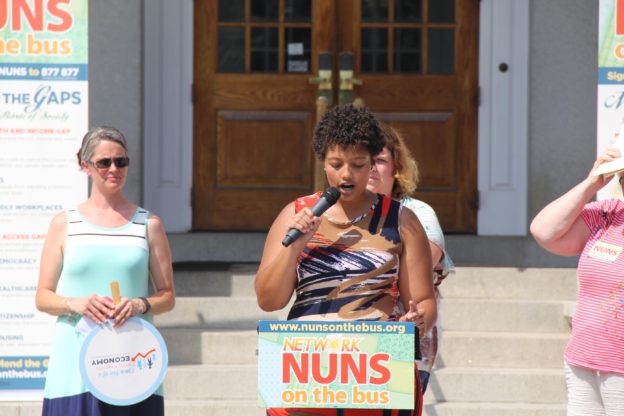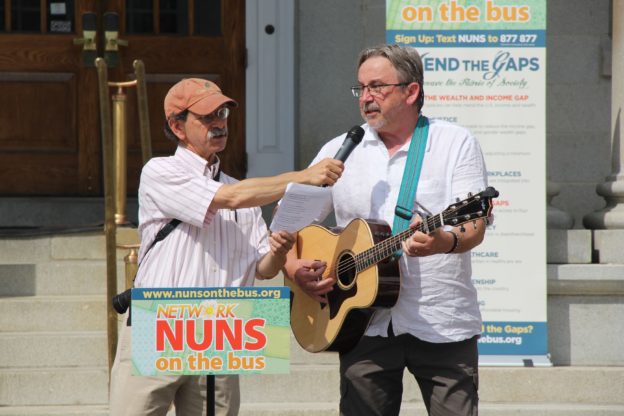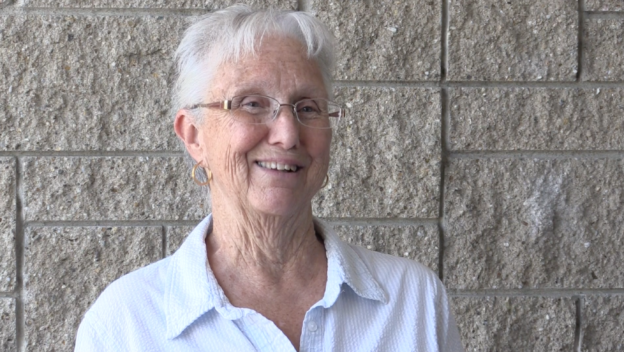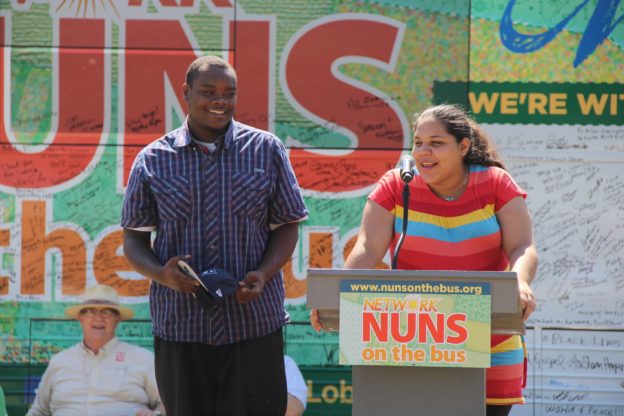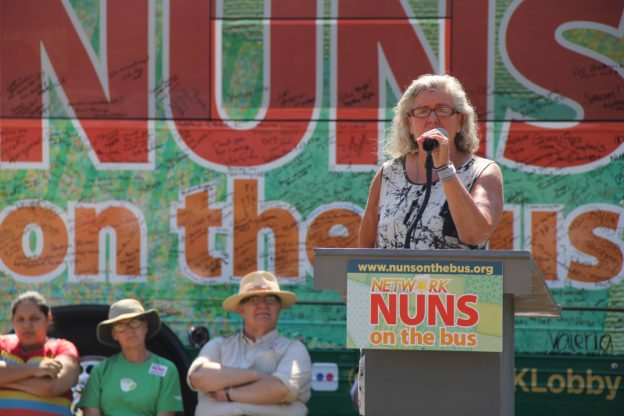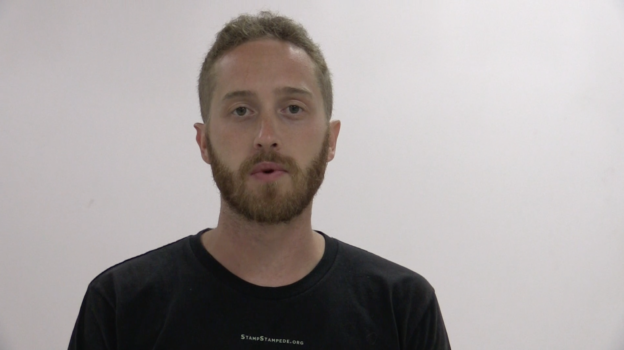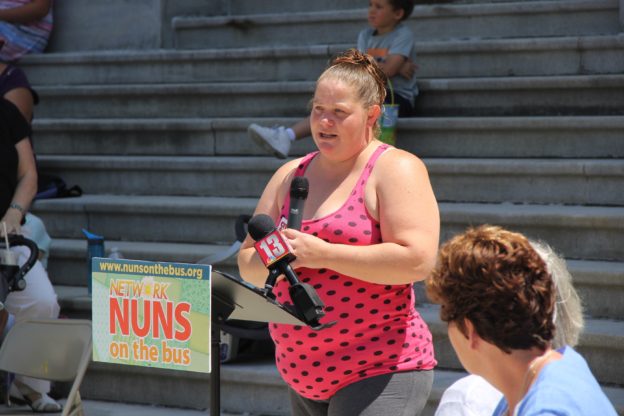Sister Eileen is a Sister of Mercy. Sisters of Mercy have been mending the gaps in New Hampshire since 1850. One of the services they provide is food.
She clarifies the important distinction between telling people “I am your voice” verses “You have a voice- I want to hear it and I want you to tell other people.”
She shares how the New Hampshire minimum wage of $7.25 an hour is not enough to live on, especially in expensive locations like Nashua. These numbers are daunting for citizens.
The heat of recent days reminds her of those who have no shelter from the heat. She shares the names of Maureen- who at 67 can’t survive on her Social Security and part time job, Tom- who wants to work but sustained injuries during at work and is on Medicaid, Maria- who paid taxes but received no benefits because she’s and immigrant, Ray- who’s mental illness and troubled family has limited his resourced but plants flowers along the local rail trail, Sharon- a mother of four who has been on a waiting list for subsidized housing for 10 years, Anthony- a 49-year old who has recently passed away from addiction and poverty, Brenda- who works for a social service agency and has insurance but still cannot keep up with co-pays, as well as bright young people like Kelsey, Steven, and Sergio who are working to earn money for college.
She strives to share their stories with policy makers and communicate the policy records of lawmakers with community members.
She calls for us to find out about our candidates and what they vote for, and share the information and get out the vote. “Spend as much time working on an issue as you spend complaining about it, discussing it, and posting on Facebook about it,” she ends, “the stories are intimate but cry to be heard, the people are precious and need to be valued.”







